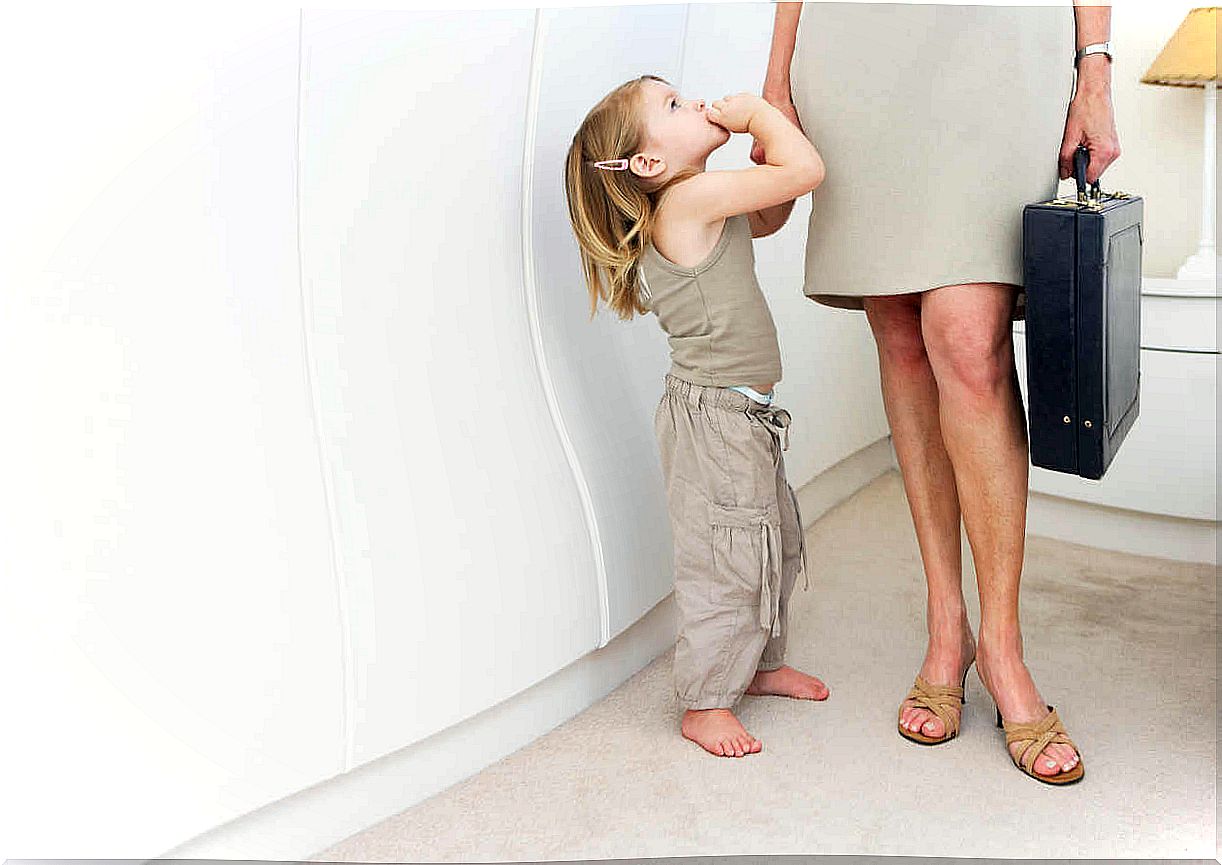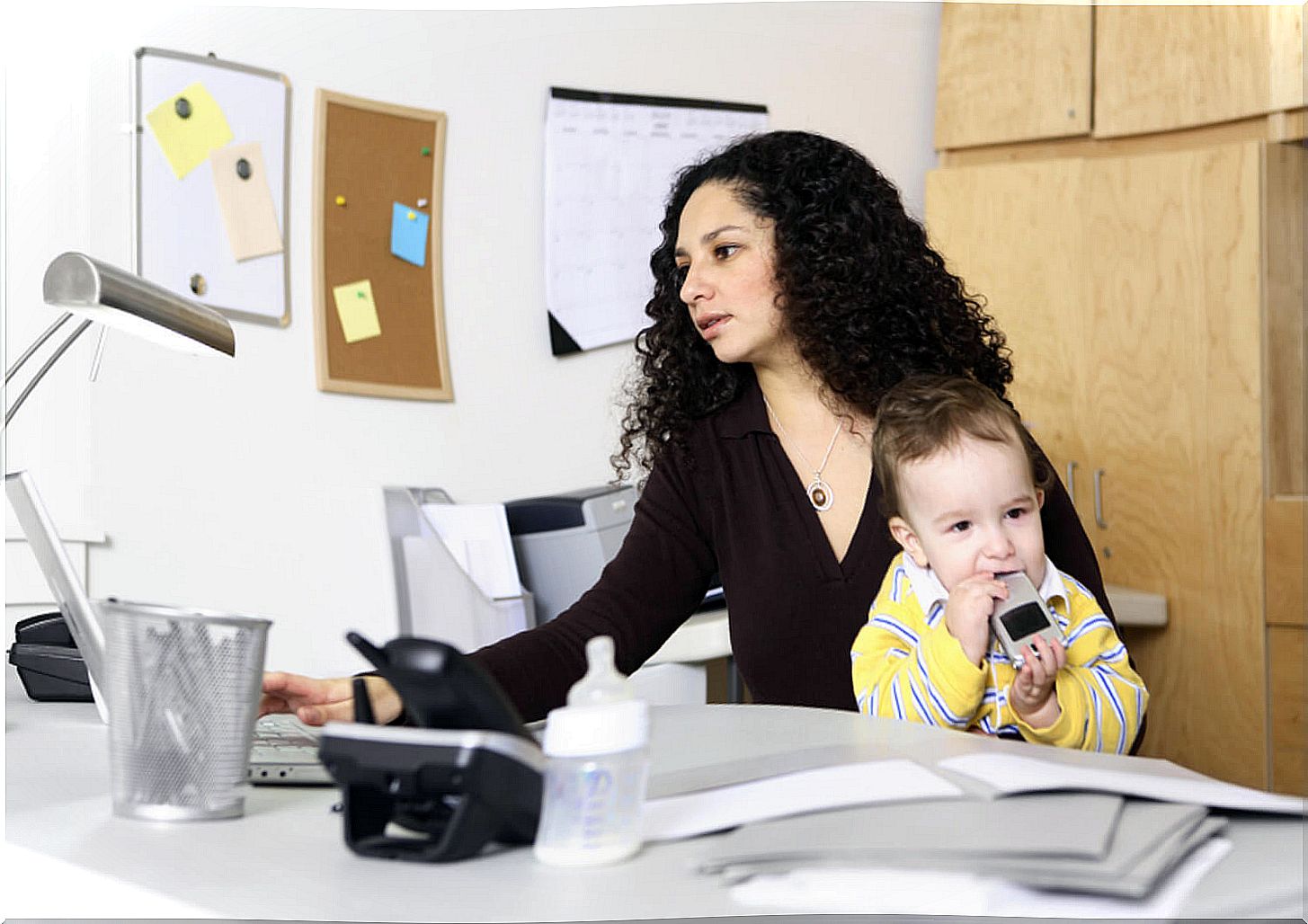I Am A Working Woman And A Mother: Someone Who Fights For Hers Every Day
At present, being a working woman and mother is still a challenge for society and for the protagonists themselves.
The reconciliation of family and work life is not harmonized in most countries, and this means deploying multiple personal strategies with which to move those we love the most forward. Quite a challenge, no doubt.
Many years have passed since the figure of women began to “inhabit” the public spheres, also performing until then masculine functions.
However, there are still many battles that remain to be won in a too complex scenario, where there is not even in many places equal pay between men and women, for example.
Being a working woman gives us satisfaction, being mothers happiness, but… How to harmonize both dimensions? We invite you to reflect on it.
Working woman: the “superwoman” of the 21st century
Being a working woman implies having a day of between 4 or 8 hours a day. If we also have children, our working hours do not have moments of rest.
- We get up early, organize the day and try to have a more or less tight order where everyone is responsible for their role, including the little ones.
- We go to work, we return home, we prepare meals, we help with homework, we accompany extracurricular activities and we try, at all times, to do our best.
However, in some cases this is considered “ideal”, because many mothers cannot even pick them up from school or have a conversation with their children until it is dark: their working hours do not allow it.
The principle of “equality” is not perceived in any sphere
- At home, many women have sole responsibility for the care of the home and children.
- Her salary is sometimes considered “complementary” to that of her husband.
- The public image of women continues to be highly discriminatory towards women: pregnancy is, in many cases, synonymous with dismissal.
To this day, and in the 21st century, gender equality is still not fully perceived, and being a working woman as well as a mother means going through certain periods of high stress.

Norway, the paradise of conciliation
Norway is an example of family and work life that institutions around the world should follow. These are some of its policies, which you can expand through various articles on the internet:
- The law grants the mother 46 weeks of leave, with 100% of the salary – or 56 weeks, with 80% -.
- The father is reserved between 10 and 12 weeks.
- Norway offers families 125 euros per child per month, until they turn 18.
- It has 4.9 million inhabitants and 80% of the women work outside the home.
- 44% of the positions on the boards of directors are held by women. Something that has been achieved thanks to strict legislation that seeks equality between genders.
The birth of a new generation: the “alpha mothers”
This data is sure to catch your eye. A new profile of a working mother is emerging that is gaining a lot of weight in our society:
- Alpha mothers are hardworking women who, above all else, value the importance of raising their children.
- Despite continuing to assume most of the responsibilities, they lead a very active life, both socially and at work.
- Many carry out their work at home thanks to new technologies, and are up to date on issues of parenting, personal development, fashion, society and science.
- They are women between 35 and 49 years old, many single mothers who prioritize not only their children, but their personal well-being, their happiness.
- They plan their schedules, live the “here and now”, take care of their food and that of the children and have full control of their lives.
- It is a generation of young women who want to be in control of their responsibilities without losing the growth of their children.

It is clear, and we know, that this is not easy to achieve so easily.
Maintaining a home requires an economic investment, and this means having to spend time away from home. So, let us hope that the institutions and society itself become aware of the need for conciliation.
Because investing in parenting is investing in the future.









